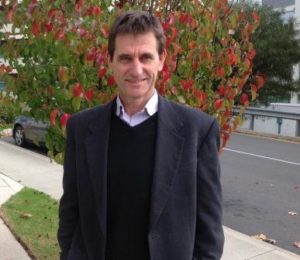
Flinders University is partnering with Country Health SA and The Young and Well Cooperative Research Centre to create Young and Well Towns, aimed at improving the mental health and wellbeing of young people in rural and regional areas.
Launched today (Thursday, February 13), the multi-million dollar initiative focuses on young people who are particularly at risk due to their geographic isolation by ramping up engagement with online mental health resources at a local level.
As part of the three-year project, training manuals will be developed to support rural health services, schools and community centres to better understand and utilise existing digital resources. The programs will then be evaluated to determine whether they lead to increased regional access to online health and wellbeing websites.
The second part of the project will engage rural adolescents in a trial of the Online Wellbeing Centre – a new online resource featuring various activities and tips to help young people reduce stress, anxiety and depression. An evaluation of the site will be carried out to determine young people’s engagement with the resource and whether it leads to measurable improvements in their mental health and wellbeing.
Chief investigator Professor Malcolm Battersby, Head of Psychiatry at Flinders University and Director of the Flinders Human Behaviour and Health Research Unit, said the overall aim of Young and Well Towns is to increase and improve support by breaking down barriers, including service limitations, privacy concerns and transport issues.
“Young people in rural areas are often reluctant to seek help because they don’t want their friends or family to find out through town gossip, and being in the country they also face difficulties travelling to the few services available to them,” Professor Battersby said.
“While online health resources can be really valuable in addressing choice limitations and confidentiality concerns, there’s a general lack of awareness among young people about the benefits of internet interventions and support,” he said.
“Many service providers are also limited in their capacity to use technology to engage with young people, which is why it’s important to come up with innovative ways of reaching out to young people and those who work with young people.”
A number of local youth ambassadors will be enlisted to work as peer mentors on the project, Professor Battersby said, while a training component will also be included to help health workers and teachers learn how to tap into, and promote through schools, existing youth wellbeing websites.
Young and Well Cooperative Research Centre Chief Executive Officer, Associate Professor Jane Burns, said recent data showed the mental health and wellbeing of young people living in regional and remote areas was of major concern.
“The latest Young and Well National Survey found that 16 per cent of young people in rural areas aged between 16 and 25 felt that their life was hardly worth living, and that 15 per cent thought that they would be better off dead. This is completely unacceptable,” Associate Professor Burns said.
“We are currently faced with a situation where 46 per cent of young people in these areas are experiencing moderate to very high levels of psychological distress and we need to create new, innovative ways of improving wellbeing,” she said.
“With figures showing that young people in rural areas are engaged in the online world, there is an unprecedented opportunity to harness this engagement and widely promote the resources and support that is readily available online, anytime, anywhere.”
Country Health SA Executive Director Mental Health Rebecca Graham said the project complements the existing efforts of Country Health SA to refocus mental health services towards young people.
“Country Health SA is committed to providing young people from the ages of 16 to 24 with quality and responsive mental health services, which will complement and extend our current approaches,” Ms Graham said.
“We see every contact as a unique opportunity to strengthen a young person’s mental fitness and engagement with life, and having a resource like the Online Wellbeing Centre is an exciting step forward,” she said.
“We recognise that young people may seek help only once, but if we can offer a youth friendly and accessible response that gives them what they need, then we know that they will come back for more or recommend to a mate who needs support.
“In doing this, we aim to break down the disadvantages of distance and remoteness and build on the strength of country communities.”

